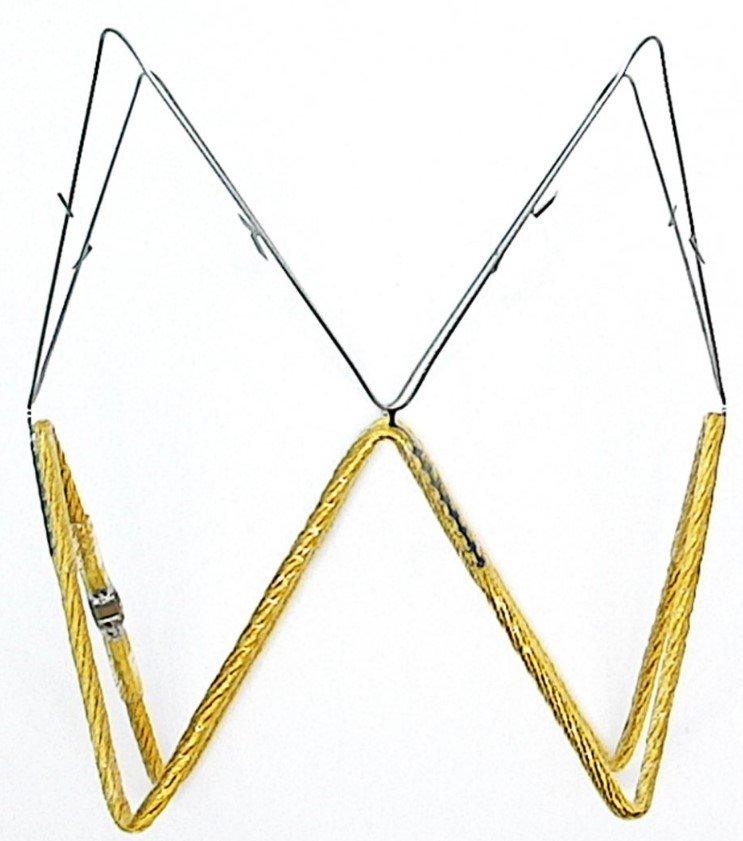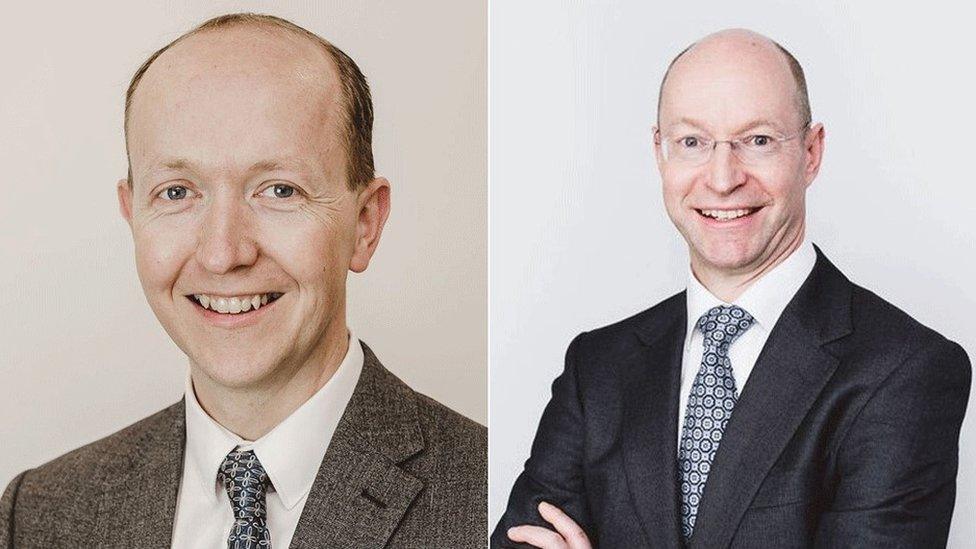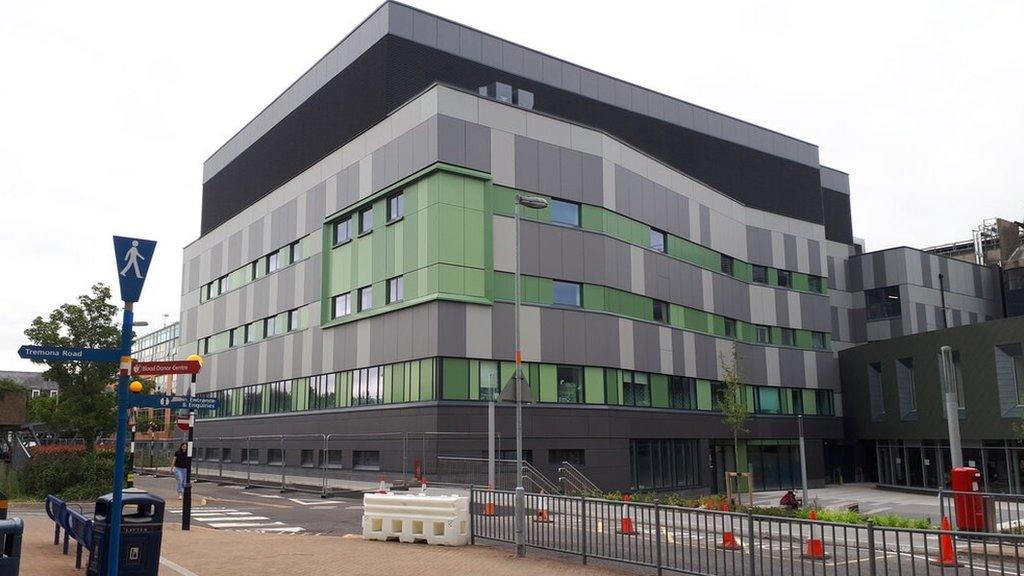Southampton patient receives pioneering heart failure sensor
- Published

The FIRE1 System was implanted during clinical trials at University Hospital Southampton
A heart failure patient has become the first in the UK to be fitted with a new early warning sensor the size of a pen lid.
The FIRE1 System was implanted during clinical trials at University Hospital Southampton (UHS) in Hampshire.
It is designed to give off an alert whenever the patient's condition deteriorates.
Consultant cardiologists Dr Andrew Flett and Dr Peter Cowburn oversaw the procedure.
The sensor monitors the amount of fluid in the body, with elevated levels suggesting worsening heart failure.
It is implanted into the the body's largest vein, located in the abdomen, known as the inferior vena cava (IVC), which carries oxygen-depleted blood back to the heart.
"[The device] works by continuously measuring the size of the IVC, giving a marker of the amount of fluid in the body," a UHS spokesperson explained.
"High levels can increase the risk of breathing difficulties and a build-up of fluid in the lungs which can lead to an emergency hospital admission."

Dr Andrew Flett and Dr Peter Cowburn oversaw the procedure
The device can be implanted during a 45-minute procedure using a small catheter placed in a vein at the top of the leg.
It is collapsed on entry and pushed up into the IVC to expand to its full size.
The patient wears an external detection belt across the abdomen for one to two minutes a day to power the implanted sensor via radiofrequency energy.
The data is then sent to medical staff at UHS.
Dr Flett said: "This innovative new device has the potential to improve patient safety and outcomes in the management of patients with chronic heart failure and we are delighted to be the first site in the UK to implant as part of this ground-breaking study."
He said a second patient had since received the implant.
"We look forward to receiving [the data] so that we can intervene earlier in a bid to reduce hospital visits and keep patients well for longer," he added.
UHS admits 700 patients with heart failure every year.
About 900,000 people are living with heart failure in the UK, costing the NHS £2bn per year.

Follow BBC South on Facebook, external, Twitter, external, or Instagram, external. Send your story ideas to south.newsonline@bbc.co.uk, external.
Related topics
- Published12 February 2023

- Published3 November 2022
